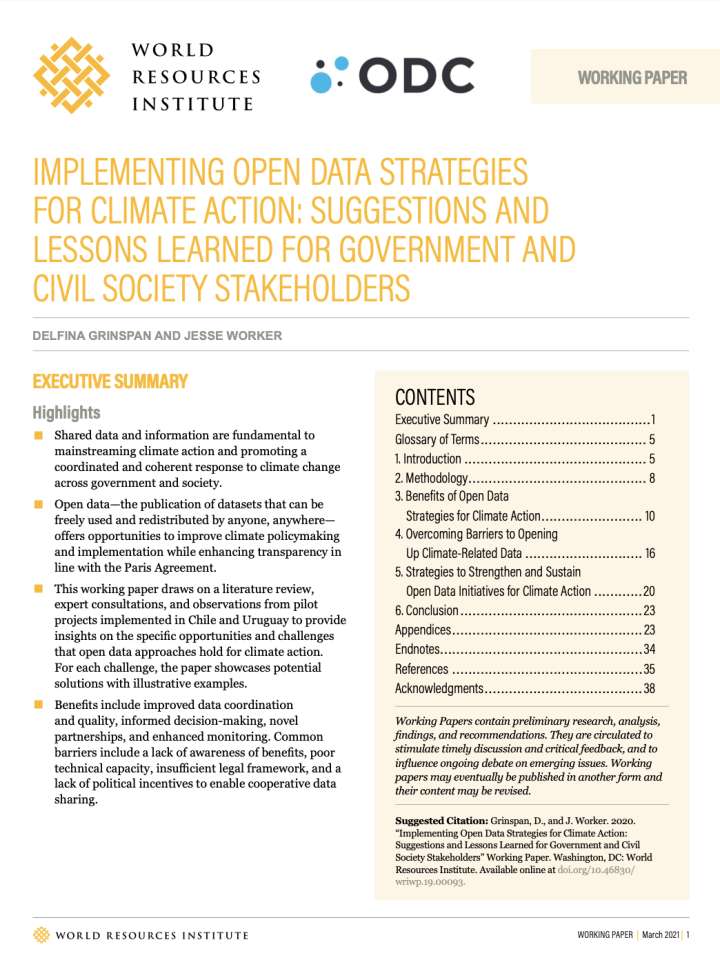Implementing open data strategies for climate action: Suggestions and lessons learned for government and civil society stakeholders
This working paper aims to promote greater accessibility of climate-related data by building government officials’ and other stakeholders’ understanding of the benefits of open data practices for climate action, potential challenges, and ways to address these challenges while taking steps to ensure that data publication is impactful, responsible, and sustainable. It draws on a literature review, expert consultations, and observations from pilot projects implemented in Chile and Uruguay to provide insights for contexts with a range of data capacities, from those with mature data collection and publication protocols to those investing in new data generation processes.
Promoting greater accessibility to climate-related data through open data can hold multiple benefits for climate policymaking and action, including:
- Improved data coordination and quality: Open data can shed light on heterogeneous use of standards and duplicative investments in data products.
- Informed decision-making: Open data can help improve the use of data for decision-making by reducing fragmentation, building users’ awareness of available data, and facilitating the integration of data from various sources.
- Greater coordination and novel partnerships: Open data initiatives can be an effective strategy to build trust between actors and foster new collaborations through data applications.
- Democratizing modeling approaches: Open data can help make climate modeling more transparent, accessible, and context-specific by increasing access to local and national data that can be used to downscale regional or global models.
- Enhanced monitoring of policies and programs: By improving accessibility, open data makes it possible for citizens to engage in formal and informal monitoring processes in an evidence-based manner.
Explore further
